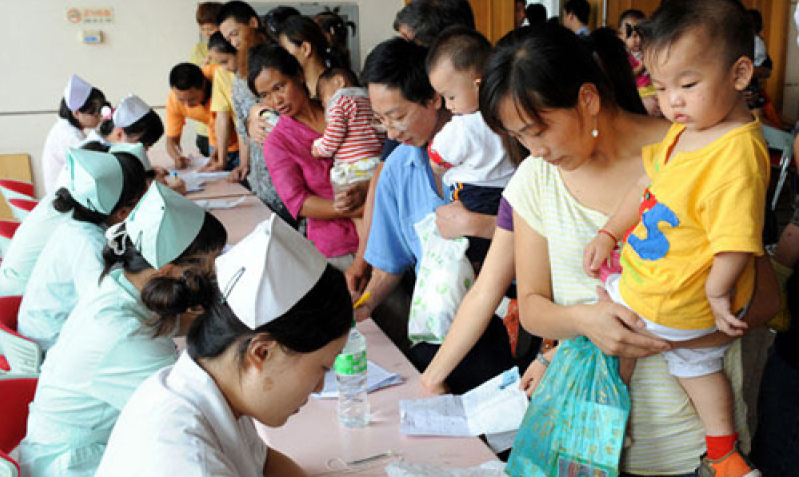
On February 13, BBC published an article titled "Is It the Food or the Heart That's Poisoned?" analyzing the incidents of contaminated milk and the continuous outpouring of toxic foods in China.
The report stated that the first reason is the lack of “business ethics” that was replaced by the value that money is above all things, which has caused the Chinese to break all traditions, modern day values, and make the market fall into a moral crisis.
BBC stated that the only way to solve this problem is for the people’s hearts change.
Continuous Outpouring of Toxic and Poisonous Food Problems
In the report, BBC listed some of the incidents of toxic food incidents that took place in China in recent years:
Last year, the incident of milk contaminated with industrial chemical melamine was blamed for the death of six children and making some 300,000 sick.
Last month, dozens of babies from around 20 provinces have been examined with calcified lesions and kidney stones from consuming milk powders manufactured in China by foreign investment company Dumex Food Corp.
In 2007, 80 thousand toothpastes manufactured in China were found to contain poisonous ingredient called diethylene glycol, a kidney and liver toxin, used to make brake fluid and anti freeze.
With numerous incidents of poisonous foods and products, the United States and other western countries has labeled “Made in China” products as “Poisonous or Polluted”. High-level Chinese officials call it a “Crisis of China’s Food Product.”
In the past years, countless incidents of food being toxic or heavily polluted were reported in China: hams soaked with insecticides, vegetables with high concentration of pesticide residues, white wines used for cooking made with industrial alcohol, soy sauce containing E. coli, mercury, and arsenic trioxide, toxic rice, toxic duck eggs, and even toxic purified water.
In conclusion, BBC stated that every person living in China, whether of high status or of great wealth or the food manufacturers themselves, have to eat and drink these poisoned products and be directly harmed by them. Although health problems may not appear immediately, through long-term accumulation of these tainted products cancer may breakout, which may be an answer for the recent reports of rapid increase of people getting cancer in recent years.
Lack of Morals is the Leading Cause
According to BBC, the primary cause for these phenomenon lies in the business ethics that has lost the moral constraints, while other causes are looseness of laws and system of regulation.
Furthermore, since atheism became the national belief for the country’s citizens after 1949 and with the economic reforms, “money above all” has become the common standard within China’s business world. In addition, after being taught the atheistic worldview, the Chinese who have no constraints are breaking all traditions and modern values, striving to break-free from their life of poverty in an environment with no moral constraints, reported the BBC.
Therefore, whoever can earn money is a successful businessman. It doesn’t matter how you earn money, nor does the welfare of the buyers of the products matter to those who are successful or the entrepreneurs.
Even with strict laws and a system of regulations, however, it would still be easy to acquire money through illegal means. In China, although the laws are in place, bribery can make the laws as if they are just blank sheets of papers and the regulation as if there are none, which also refers to the media that is suppose to serve as the public’s conscience.
Lastly, BBC pointed out that to change fix these problems, the only way in the short-run is to improve the public opinions and the people’s moral consciousness, but ultimately it depends on changing the people’s hearts.
Reporter Sally Li contributed to this report.







